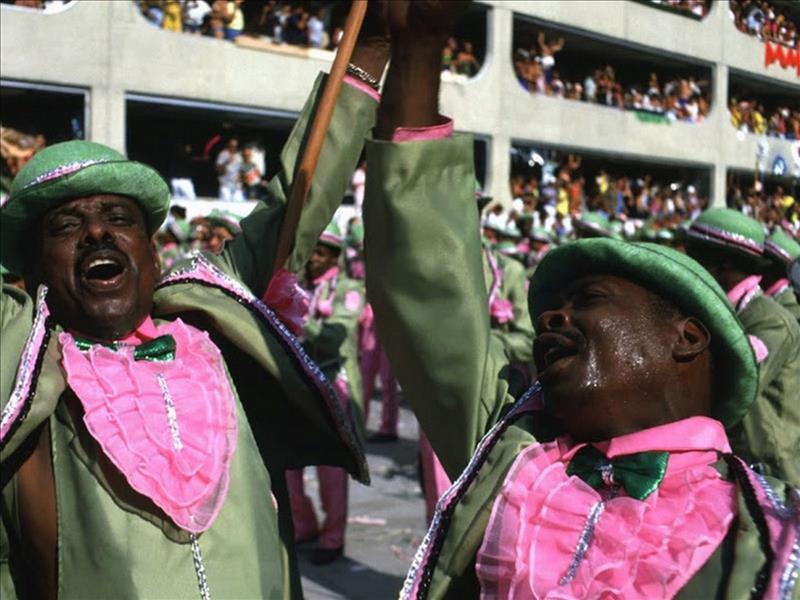Brazil's Path to Independence

Discovery of Brazil and later detachment from Portugal
On September 7th, Brazil celebrates the national holiday of independence. Since for many Brazil travelers history and culture also play an important role during their vacation, it is reason enough to take a closer look at this important event and its history:
In the 15th and 16th century, Spain and Portugal were the undisputed maritime and trading powers. Christopher Columbus discovered the "new world" in 1492 during his journey in search of India. This was the name given to the historical European juxtaposition of the new, unknown America of today as opposed to the familiar old world, consisting of Europe, Asia, and Africa. The great powers Spain and Portugal divided up this "new world" in the Treaty of Tordesillas concluded in 1494. According to the agreement, Spain was to have the western part, Portugal the northern part. Thus it came about that the then still unknown Brazil became Portuguese territory.
In the 21st century, millions of people spend their vacations in Brazil, for example in vibrant metropolises such as Rio de Janeiro or São Paulo. Brazil has so much to offer that there is something for everyone. Those who shy away from the big city can be enchanted by the rainforest in Manaus or enjoy relaxing hours at fantastic beaches like Imbassai or Florianopolis.
It is still a controversial issue today as to who is entitled to the crown for the fact that Brazil has taken its place on drawn world maps. The Portuguese navigator Pedro Alvares Cabral, who set foot on Brazilian soil on his voyage to India on April 22, 1500, is widely known as the discoverer. He landed north of the present-day city of Porto Seguro in the state of Bahia. The country was named after the valuable Brazilwood, which was found in large numbers on the island. Nevertheless, the interest in a land that seemed to consist only of wild animals, jungle, and parrots was limited for the time being. To save costs for a non-economic colony, the then Portuguese King Dom João III divided Brazil into 15 zones, the "Capitanias Hereditarias" (which in the broadest sense represent the original states of Brazil), and distributed them to noble families. The country was thus far from independence at that moment.
Soon sugar was grown, which became the most important export commodity in the following years. The Portuguese colonial power relied on austerity measures for the extraction of sugar, which was very valuable and expensive at the time. The motto was: Why to pay for work when you can import it for free. A total of three to five million Africans were shipped to Brazil for forced labor. Brazil, originally dismissed as unimportant, developed more and more into a gold mine, which also attracted the interest of other colonial powers such as England, France, and Holland. The road to independence for the fifth largest country in the world was therefore still going to be long and rocky because despite all the difficulties Portugal managed to keep the regiment in Brazil for the most part. This was worthwhile not least because of the large gold and gemstone deposits in Brazil, which were discovered and removed at the beginning of the 18th century. Rio de Janeiro replaced Salvador as capital and became one of the most important ports for the precious metal trade.
Napoleon ushered in a new era and a relevant step towards independence for the Brazilians. His conquest of Portugal forced the entire court around the now reigning King Dom Joao VI to leave the country and settle in Brazil, more precisely in Rio de Janeiro. Thus Rio was not only Brazilian but the capital of the entire Portuguese kingdom. The appointment of a colonial city as capital is a unique event in history, which had mainly positive aspects for Brazil. It was now no longer just a colony but part of the mother country, which led to the fact that in the following years the infrastructure, as well as educational institutions and industry were expanded considerably.
In 1815 Brazil was declared a kingdom and after the final defeat of Napoleon, King João VI left Brazil to return to Lisbon.
The will for independence, which the other South American states are gaining during this period under the leadership of Simon Bolivar, is also becoming stronger in Brazil. With the cry of Ipiranga: "Independencia ou Morte" (Independence or death), he takes the lead in the independence movement on September 7, 1822. Thus Brazil fought peacefully like no other Latin American country to break away from the colony. Even though the largest country in South America often had to go through dark times afterward, this day goes down in history - and September 7th is still a holiday today.
Sources: www.bpb.de; www.brasilportal.net; www.wikipedia.org; Stefan Loose, Brazil, 3rd edition, 2011, DuMont Reise verlag, Ostfildern

